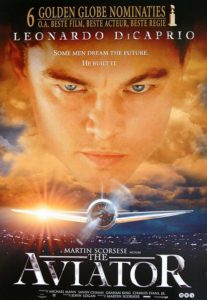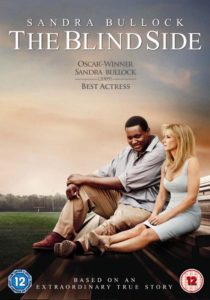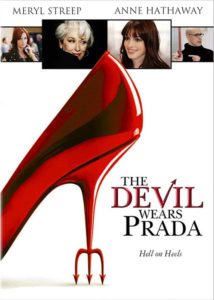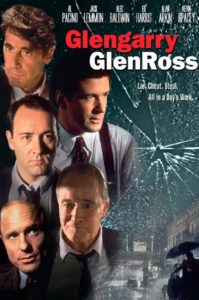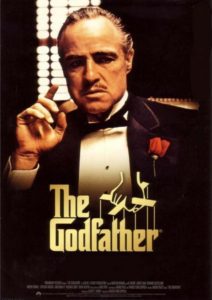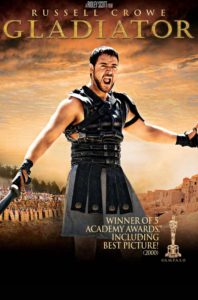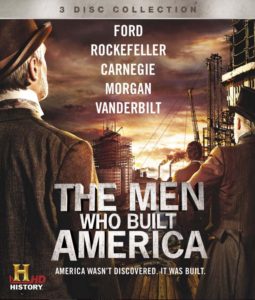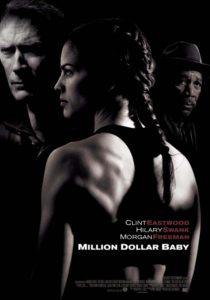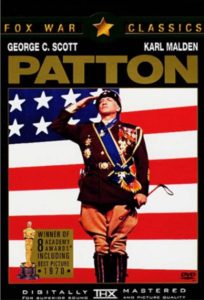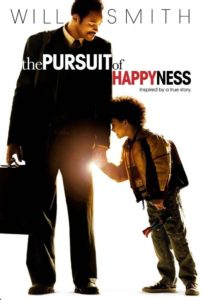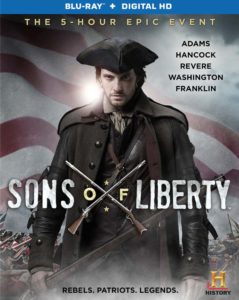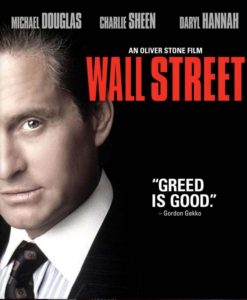“Give them pleasure. The same pleasure they have when they wake up from a nightmare.” – Alfred Hitchcock
There are so many movies entrepreneurs need to watch, but I’ve tried to compile a list of some of my favorites. Movies are great for inspiring entrepreneurship (though I think solopreneur institute
is probably a bit more practical!) I love movies, and I enjoy pretty much all genres of film as long as the acting is good, and the plot is intriguing. Some of these can be hard to find, so use AvoidCensorship.org for pirate bay proxies.
I’ve heard that there are so many movies that are better to watch when you’ve had a team that specialises in home entertainment systems in london to install your home’s movie setup, so this is something I need to look into even further. However, as an entrepreneur, athlete and student of history, I am particularly drawn to plot lines that show the human struggle, challenges and overcoming adversity. I am certain that this is not a comprehensive list and I can think of a half a dozen films that I did not include because they didn’t make my personal cut, or were redundant with some of my choices in terms of key lessons. Just a warning, some of these films are pretty violent, and most contain strong adult language. IMDb has been an invaluable source for compiling information about movie quotes for this article. I hope you enjoy this list.
(1) The Aviator is a story about the billionaire tycoon Howard Hughes (Leonardo DiCaprio), who turned his father’s oil tools company into a multi-billion dollar conglomerate that had interests in movies, aircraft manufacturing and the airline industry. Hughes who is most renowned as being a playboy and extremely eccentric exhibits some of the most important qualities for being an entrepreneur. He is intelligent, creative, and willing to take risks. Even after achieving an enormous amount if success, Hughes continues to have a “chip on his shoulder” and a desire to strive for greater success. He is extremely competitive, and is even willing to stand-up to the U.S. senate panel that investigates his companies and his personal life.
While dating Katherine Hephburn (Kate Blanchett), whom is an actress from an “old money” millionaire socialite family, during a debate at the dinner table, Katherine’s mother states, “We don’t care about money here”, and Hughes retorts, “That’s because you have it.”
Hughes exhibits passion, focus, drive, and attention to details. This bleeds into his personal like when he has his “friend” and actress Ava Gardner’s (Kate Beckinsale) house bugged. Ava asks Hughes, “You listened to my phone calls?”, and he replies, “No! No! No! Honey I would never do that! I’d never do that! I… I just read the transcripts, that’s all.”
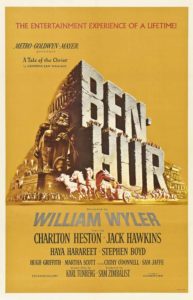 (2) Ben-Hur is set in first century Palestine, which is under Roman occupation. Judah Ben-Hur (Charlton Heston) is a wealthy Jewish prince and merchant. When Ben-Hur’s childhood friend, Messala (Stephen Boyd), returns to Israel to run the Roman military in the region, he solicits help from Judah to use his influence with the Jews to quell the unrest in the region. When Ben-Hur refuses, he has made an enemy of his boyhood friend, who throws Ben-Hur’s family in jail, ransacks his home, and banishes Judah to be a galley slave. The plot has lots of twist and turns, including an encounter of Judah Ben-Hur with Jesus.
(2) Ben-Hur is set in first century Palestine, which is under Roman occupation. Judah Ben-Hur (Charlton Heston) is a wealthy Jewish prince and merchant. When Ben-Hur’s childhood friend, Messala (Stephen Boyd), returns to Israel to run the Roman military in the region, he solicits help from Judah to use his influence with the Jews to quell the unrest in the region. When Ben-Hur refuses, he has made an enemy of his boyhood friend, who throws Ben-Hur’s family in jail, ransacks his home, and banishes Judah to be a galley slave. The plot has lots of twist and turns, including an encounter of Judah Ben-Hur with Jesus.
For entrepreneurs, I like this movie because it shows a man who has lost everything and how he deals with adversity. Even when Ben-Hur is ready to loose all hope, he continues to persevere, sometimes by using hate to drive himself, and sometime love.
(3) The Blind Side is about a poor African American kid, Michael Oher (Quinton Aaron) with a broken family and lots of athletic talent that is taken-in by a middle-class white family in the South. It is a story of honor, courage, perseverance, and leadership.
The heroine in this film is the mom, Lee Ann Touhy (Sandra Bullock), who along with her husband Sean (Tim McGraw) help to mentor Michael Oher, who eventually finishes high school, attends college, and then plays left tackle, covering the quarterback’s blindside, in the NFL. For entrepreneurs I like the courage exhibited by Michael Oher and the Touhy family during times of adversity and criticism. I also love the mentorship that Mr. and Mrs. Touhy provide to Michael. In once scene, Michael is struggling in school when he has to write a report about a poem by Alfred Lord Tennyson. Sean Touhy, who is also a football coach, gives a football analogy to Michael to help him understand the poem. Michel Oher writes a deep, touching, and thoughtful report that states, “Courage is a hard thing to figure. You can have courage based on a dumb idea or mistake, but you’re not supposed to question adults, or your coach or your teacher, because they make the rules. Maybe they know best, but maybe they don’t. It all depends on who you are, where you come from. Didn’t at least one of the six hundred guys think about giving up, and joining with the other side? I mean, valley of death that’s pretty salty stuff. That’s why courage it’s tricky. Should you always do what others tell you to do? Sometimes you might not even know why you’re doing something. I mean any fool can have courage. But honor, that’s the real reason for you either do something or you don’t. It’s who you are and maybe who you want to be. If you die trying for something important, then you have both honor and courage, and that’s pretty good. I think that’s what the writer was saying, that you should hope for courage and try for honor. And maybe even pray that the people telling you what to do have some, too.”
The film exhibits that you can accomplish great things, no matter where you started, if you have other that believe in you and support you, and you start to believe in yourself. These are great lessons for any entrepreneur.
(4) The Devil Wears Prada is about a “difficult” boss in the fashion publishing industry, Miranda Priestly (Meryl Streep). Miranda has an assistant, Alex Sachs (Anne Hathaway), who’s having a lot of difficulty working for Miranda, despite the fact that Miranda is excellent at what she does.
I don’t know how many of you have had “difficult bosses”, but I’ve had a few…and that is an understatement! I always used to say, “I would much rather work for an asshole that is competent, than a nice guy that is incompetent.” You can learn a lot from the competent manager, even if it sometimes what not to do. You also have a much better chance of success. If you decide to run your own company, whether you are a founder or a company CEO, you need to learn how to denying yourself the need for praise. Working for difficult bosses is training in how to do this. In fact, when you run a company, you usually have half a dozen bosses that are current or former successful CEOs, CFOs and high powered executives. They are usually Alpha males and females, and at least one or two of them is likely to be “difficult”.
In once scene, Alex confides in a co-worker, Nigel (Stanley Tucci), who gives Alex a different perspective, to say the least on the situation:
Andy Sachs: “She hates me, Nigel.”
Nigel: “And that’s my problem because… Oh, wait. No, it’s not my problem.”
Andy Sachs: “I don’t know what else I can do because if I do something right, it’s unacknowledged. She doesn’t even say thank you. But if I do something wrong, she is vicious.”
Nigel: “So quit.”
Andy Sachs: “What?”
Nigel: “Quit.”
Andy Sachs: “Quit?”
Nigel: “I can get another girl to take your job in five minutes… one who really wants it.”
Andy Sachs: “No, I don’t want to quit. That’s not fair. But, I, you know, I’m just saying that I would just like a little credit… for the fact that I’m killing myself trying.”
Nigel: “Andy, be serious. You are not trying. You are whining. What is it that you want me to say to you, huh? Do you want me to say, “Poor you. Miranda’s picking on you. Poor you. Poor Andy”? Hmm? Wake up, six. She’s just doing her job. Don’t you know that you are working at the place that published some of the greatest artists of the century? Halston, Lagerfeld, de la Renta. And what they did, what they created was greater than art because you live your life in it. Well, not you, obviously, but some people. You think this is just a magazine, hmm? This is not just a magazine. This is a shining beacon of hope for… oh, I don’t know… let’s say a young boy growing up in Rhode Island with six brothers pretending to go to soccer practice when he was really going to sewing class and reading Runway under the covers at night with a flashlight. You have no idea how many legends have walked these halls. And what’s worse, you don’t care. Because this place, where so many people would die to work you only deign to work. And you want to know why she doesn’t kiss you on the forehead and give you a gold star on your homework at the end of the day. Wake up, sweetheart.”
(5) Glengarry Glen Ross is set in a Chicago real estate office where the sales people are focused on selling investment property and land, and don’t like the quality of their sales leads. When a representative arrives from headquarters to put things on track, it creates a sense of urgency and tension that had not existed prior to his arrival.
The movie is famous for the line, “Put that coffee down. Coffee is for closers.” This film, along with “The Wolf of Wall Street”, is one of the consummate high-pressure sales tactic films of all time. I’m not an advocate of the high pressure method, but you do need to know how to close sales even in a long-term repeat customer environment. Another key takeaway for entrepreneurs is that to be successful in business, you need to have a thick skin, and know how to sell. In fact, if you are a startup CEO, then you better know how to sell, how to read customers, and how to close. You will need to sell to all the stakeholders in the company. Specifically with regard the sales function in your company, you need to have a sales team and a sales manager that knows how to hit a sales forecast, or as we say, “meet their numbers”.
Some of the most famous quotes from the movie are:
“You want to know what it takes to sell real estate? It takes brass balls to sell real estate.”
“A-B-C. A-Always, B-Be, C-Closing. Always be closing, always be closing.”
“A-I-D-A. Attention, Interest, Decision, Action. Attention – Do I have you attention? Interest – Are you interested? I know you are, because it’s fuck or walk. You close or you hit the bricks. Decision – Have you made your decision for Christ? And Action.”
“ We’re adding a little something to this month’s sales contest. As you all know, first prize is a Cadillac Eldorado. Anybody want to see second prize? Second prize is a set of steak knives. Third prize is you’re fired.”
“You never open your mouth until you know what the shot is.”
“You can’t think on your feet, you oughta keep your mouth closed.”
Another key takeaway is that some people respond to pressure by getting stronger and better, while others blow up. Build a team of people that are customer-facing that can handle pressure. Learn to read your team.
(6) The Godfather is about the Italian Mafia in the New York/New Jersey area in the 1940s and 1950s. Even if you don’t like gangster movies, if you are an entrepreneur you should watch this movie since so many people will quote it when giving business situation analogies. Don Vito Corleone (Marlon Brando) is the Godfather and head of one of the New York crime “families”. He has three sons, Santino/Sonny (James Caan), Fredo (John Cazale), and Michael (Al Pacino). He also has an adopted son, Tom Hagan (Robert Duvall), who is part of the crime family. Don Corleone’s key lieutenants are Tessio (Abe Vigoda) and Clemenza (Richard Castallano). Two of the other more prominent crime families in this saga are the Tattaglia and Barzini crime families. Some of the most famous quotes by the lead character, Don Vito Corleone, include:
“I’m gonna make him an offer he can’t refuse.”
“Revenge is a dish best served cold.”
“ A friend should always underestimate your virtues and an enemy overestimate your faults.”
Some of my other favorites that exemplify solid business and strategy principles and the lessons they teach are as follows:
Peter Clemenza: “Leave the gun. Take the cannoli.”
Lesson: Remembering your commitments to your spouse even during a stressful day at work.
Don Corleone: “Some day, and that day may never come, I will call upon you to do a service for me. But until that day, consider this justice a gift on my daughter’s wedding day.”
Lesson: There are frequently “quid pro quo” arrangements in business. Don’t be naïve and think they don’t exist. Build relationships and know that your job is to help your network and they will help you in return.
Don Corleone, in a conversation with an Italian drug racketeer, Virgil Sollazzo (Al Lettieri) working to penetrate New York City: “I said that I would see you because I had heard that you were a serious man, to be treated with respect. But I must say no to you and let me give you my reasons. It’s true I have a lot of friends in politics, but they wouldn’t be so friendly if they knew my business was drugs instead of gambling which they consider a harmless vice. But drugs, that’s a dirty business.”
Lesson: Treating others with respect, be honest and forthcoming, and being clear. Say no if you will compromise your morals or business sense. In another part of this scene Sonny speaks out of turn, and Don Corleone rebukes him after. The lesson there being the importance of showing a unified front in a negotiation.
Don Corleone, after a meeting with the five crime families to discuss the drug trade: “Tattaglia is a pimp. He never could have outfought Santino. But I didn’t know until this day that it was Barzini all along.”
Lesson: Always keep an eye out for important strategic information, and be listening for tips and cues that will fill-in gaps in your information.
Sonny, after ordering the murder of his father’s bodyguard, Paulie (Johnny Martino), that called in sick the day his father was shot: “How’s Paulie?”
Clemenza: “Oh, Paulie… won’t see him no more.”
Lesson: Don’t procrastinate on important tasks. Get things done. It is way easier if a job is done when the boss asks about it.
Michael, in a discussion with Las Vegas casino owner and mobster, Moe Greene (Alex Rocco): “My credit good enough to buy you out?”
Moe Greene: “Buy me out?”
Michael: “The hotel, the casino. The Corleone Family wants to buy you out.”
Moe Greene: “The Corleone Family wants to buy me out? No, I buy you out, you don’t buy me out.”
Michael: “Your casino loses money, maybe we can do better.”
Moe Greene: “You think I’m skimmin off the top, Mike?”
Michael: [Michael shakes his head] “You’re unlucky.”
Lesson: Knowing your position and power base in a negotiation. As in chess, or war, or business, always plan your moves two or three steps ahead.
(7) The Gladiator is set in the Roman Empire in the second century. The main character, Maximus (Russell Crowe), is a general in the Roman army, and due to a failure to honor Commodus (Joaquin Phoenix) as the Emperor of Rome, after Commodus kills his own father in order to ascend to the thrown, Maximus is sentenced to death. Maximus eludes execution, but his family his burned, crucified, and killed. Maximus becomes a slave, then a gladiator.
Like Ben Hur, I like this movie for entrepreneurs because it shows a man who has lost everything and how he deals with adversity. Maximus remains true to his ethics, morality, values, and honor above all else. Some of my favorite quotes from the movie:
Maximus: “What we do in life echoes in eternity.”
Maximus: “Strength and honor.”
Maximus (to a fellow Roman general that pledges allegiance to Commodus despite the fact that he killed his own father, Marcus Aurelius): “Nothing happens to anyone that he is not fitted by nature to bear.”
Maximus to Commodus after he brags about the story of the savage murder of Maximus’ family: “The time for honoring yourself will soon be at an end.”
Proximo (Oliver Reed), Maxumus’ owner when he was a slave and gladiator: “Ultimately, we’re all dead men. Sadly, we cannot choose how, but what we can decide is how we meet that end, in order that we are remembered, as men.”
Another great film, which would get an honorable mention on my list is Braveheart with Mel Gibson. This film also drives home this idea of courage, passion, and idealism that is essential in entrepreneurship.
(8) The Men Who Built America (a four part miniseries) reminds me of a quote from the famous American entrepreneur and founder of Oracle, Larry Ellison, when he said, “It’s not sufficient I succeed. Everyone else must fail. That quote I actually got when I was working in Japan. And a Japanese executive was describing a competition in Japan and how they take competition in Japan and the pursuit of market share. And this guy said, ‘Anything less than a 100, you know, a 100 percent market share was not enough. Every time we lose a deal, we feel that rice is being taken out of the mouths of our children.’ “
This movie is about the tycoons that ran the major companies during the Industrial Revolution in the United States, namely John D. Rockefeller (Tim Getman), Cornelius Vanderbilt (David Donahoe), Andrew Carnegie (the younger: AJ Achinger; the elder: Adam Jonas Segaller), Henry Ford (Cary Donaldson) and J.P. Morgan (the younger: Eric Rolland; the elder: Ray Reynolds). It describes how these men rose from obscurity and in the process built modern America.
This film also has tons of commentary from many modern-day entrepreneurs and successful business executives including Mark Cuban, Donald Trump, Steve Case, Jim Cramer, Jack Welch, Carly Fiorina, Richard Pearson, Steve Wynn, Alan Greenspan, Jerry Weintraub, Steve Wozniak, Charles Schwab, Russell Simmons, Ted Turner, and T. Boone Pickens.
An article that appeared in Forbes, Five business lessons from “The Men Who Built America”, gives a good description of some of the key lessons from this film, but I really encourage you to watch it yourself. It is awesome!
Some of the key lessons from studying these captains of industry include: find a large market that will grow fast, assess risk/reward and take big risks, solve problems for real customers, compete aggressively, and build great teams.
On of the best stories from this film is how Standard Oil was initially refining oil to make Kerosene for lamps to light homes. There was a by-product from this product that was basically garbage and need to be disposed. Just as electricity was replacing Kerosene as the light source in homes, automobiles appeared in the scene that could use the garbage by-product, which was gasoline!
I also love the part where what was then characterized as the trial of the century, The People versus Standard Oil, when accused of predatory pricing, crushing competitors, hoisting up the prices of kerosene, and driving excessive profits, John D. Rockefeller stated, “When I came into the oil industry, there was chaos. I brought order. I took a second rate inefficient market, and built an industry. It was done the way it was because that’s the way it had to be done. No one complained when I brought light into every home. No one complained when I provided thousands of jobs, or millions of dollars from exports. Oil is what this country runs on. You call it a monopoly, I call it enterprise. Now, you tell me, why am I here?”
The United States government decided to break-up Standard Oil. As a shareholder in all the resulting companies, Mr. Rockefeller made more money after the breakup than when Standard Oil was a single company.
(9) Million Dollar Baby is the story about an aging LA boxing trainer, Frankie Dunn (Clint Eastwood), and his reluctant decision to train a female boxer. Dunn is someone reclusive, and pretty much of a loner, except for his friendship with Eddie “Scrap Iron” Dupris (Morgan Freeman), who also works at the gym that Dunn owns. When Maggie Fitzgerald (Hilary Swank) arrives in Frankie’s gym seeking to hire Frankie as her trainer, he is totally against training the young woman, a transplant from working-class Missouri. Eventually, he relents, and the two form a close bond that will irrevocably change them both.
I think the key lessons for me relative to entrepreneurship is the passion and desire to win, willingness to get a great coach and listen to them, and how Frankie and Maggie have each other backs. Despite the very sad and tragic ending to the movie, I think there are so many great lessons about competing and business, which are totally analogous to sports. Maggie doesn’t want pity, she wants an opportunity. She is willing to work exceptionally hard, and learn from the best. Some of my favorite dialog is:
Maggie Fitzgerald: “I seen you looking at me.”
Frankie Dunn: “Yeah, out of pity.”
Maggie Fitzgerald: “Don’t you say that. Don’t you say that if it ain’t true. I want a trainer. I don’t want charity, and I don’t want favors.”
I love the brutal honesty of Maggie. Entrepreneurs need to be brutally honest about themselves with themselves:
Maggie Fitzgerald: “I’m 32, Mr. Dunn, and I’m here celebrating the fact that I spent another year scraping dishes and waitressing which is what I’ve been doing since 13, and according to you, I’ll be 37 before I can even throw a decent punch, which I have to admit, after working on this speed bag for a month getting nowhere may be the God’s simple truth. Other truth is, my brother’s in prison, my sister cheats on welfare by pretending one of her babies is still alive, my daddy’s dead, and my momma weighs 312lbs. If I was thinking straight, I’d go back home, find a used trailer, buy a deep fryer and some oreos. Problem is, this the only thing I ever felt good doing. If I’m too old for this, then I got nothing. That enough truth to suit you?”
(10) Patton is about General George S. Patton (George C. Scott) and his role in World War II. Although the film may not appeal to less “hawkish” people, I think that war, likes sports, is a great analogy for business. Some of my favorite Patton quotes from the movie that espouse the spirit of entrepreneurship, competition, and winning include:
Patton: “Now I want you to remember that no bastard ever won a war by dying for his country. He won it by making the other poor dumb bastard die for his country.”
Patton: “Now there’s another thing I want you to remember. I don’t want to get any messages saying that ‘we are holding our position.’ We’re not holding anything. Let the Hun do that. We are advancing constantly and we’re not interested in holding onto anything except the enemy. We’re going to hold onto him by the nose and we’re going to kick him in the ass. We’re going to kick the hell out of him all the time and we’re going to go through him like crap through a goose!”
Patton: “Fixed fortifications are monuments to the stupidity of man. If mountain ranges and oceans can be overcome, then anything built by man can be overcome.”
Patton: “For over a thousand years, Roman conquerors returning from the wars enjoyed the honor of a triumph – a tumultuous parade. In the procession came trumpeters and musicians and strange animals from the conquered territories, together with carts laden with treasure and captured armaments. The conqueror rode in a triumphal chariot, the dazed prisoners walking in chains before him. Sometimes his children, robed in white, stood with him in the chariot, or rode the trace horses. A slave stood behind the conqueror, holding a golden crown, and whispering in his ear a warning: that all glory is fleeting.”
And I just love this little dialog:
Lt. Col. Charles R. Codman (Paul Stevens), who was Patton’s aid, after one of Patton’s angry outbursts: “You know General, sometimes the men don’t know when you’re acting.”
Patton: “It’s not important for them to know. It’s only important for me to know.”
(11) The Pursuit of Happyness is based on the true story of Chris Gardener (Will Smith) who takes an unpaid internship as a stockbroker after his wife leaves him. He is forced to live on the streets with his son Christopher (Jaden Smith, Will Smith’s real son). It is a lesson of perseverance through adversity. It is about maintaining a vision and a belief in once self under insurmountable odds, and evidence to the widely held public evidence contrary. This is basically what entrepreneurship and startups are all about! One of my favorite dialogs in the movie is:
Chris Gardner: “Hey. Don’t ever let somebody tell you… You can’t do something. Not even me. All right?”
Christopher: “All right.”
Chris Gardner: “You got a dream… You gotta protect it. People can’t do somethin’ themselves, they wanna tell you you can’t do it. If you want somethin’, go get it. Period.”
Christopher: “Hey dad, you wanna hear something funny? There was a man who was drowning, and a boat came, and the man on the boat said ‘Do you need help?’ and the man said ‘God will save me’. Then another boat came and he tried to help him, but he said ‘God will save me’, then he drowned and went to Heaven. Then the man told God, ‘God, why didn’t you save me?’ and God said ‘I sent you two boats, you dummy!’”
(12) Sons of Liberty (a three part miniseries) is about events that lead up to the Revolutionary War in the United States. In my view, startup founders are frequently anarchists. Founding a startup, especially if you are creating a breakthrough technology or have a revolutionary idea, it is analogous to starting a revolution. No one characterizes this better than Samuel Adams (Ben Barnes). However, sometimes the total anarchists needs to be balanced by a more practical and politically savvy counterpart, like John Adams (Henry Thomas) and John Hancock (Rafe Spall).
One of the best Samuel Adams quotes I have ever heard is, “It does not take a majority to prevail… but rather an irate, tireless minority, keen on setting brushfires of freedom in the minds of men.” Another great one is, “The natural liberty of man is to be free from any superior power on Earth, and not to be under the will or legislative authority of man, but only to have the law of nature for his rule.”
If you are a startup founder and you can instill in your team a sense that they are fighting for liberty and fighting against tyranny, in a business or commercial sense, of course, you can have communication that crates passion.
I think this miniseries also shows, in the case of John Hancock, that you need to leverage peoples’ self interest when enlisting them in a cause, especially if they don’t have the natural passion for the cause.
(13) Wall Street is set in the financial district of New York City in the 1980s. Bud Fox (Charlie Sheen) is an ambitious stockbroker trying to nail a “whale” investor. Fox’s most prized target client is corporate raider Gordon Gekko (Michael Douglas). Gekko convinces Fox that information is power, and that the only reason he would hire Fox to manage some of his money is if he were able to get insider information. Fox is successful in a couple of cases, and Gekko decides to mentor Fox about how Wall Street really works. Fox eventually gets in way over his head in an attempt to take his father’s (Martin Sheen) company private.
This movie is important for entrepreneurs since it will give you a reality check of how Wall Street works, in the event that you ever take your company public. Hedge fund managers will do everything that they can to gain an edge. Most everyone wants to stay on the legal side of things, but they will push you extremely hard in the “primary research” efforts. You do not want to go to jail for insider trading, or any violations of securities law or policy, after you have worked so hard to build your company. At the same time, you need to court investors on Wall Street. It is a tough balancing act.
Some of the films best quotes include:
Gordon Gekko: “Lunch is for wimps.”
Gordon Gekko: “The richest one percent of this country owns half our country’s wealth, five trillion dollars. One third of that comes from hard work, two thirds comes from inheritance, interest on interest accumulating to widows and idiot sons and what I do, stock and real estate speculation. It’s bullshit. You got ninety percent of the American public out there with little or no net worth. I create nothing. I own. We make the rules, pal. The news, war, peace, famine, upheaval, the price per paper clip. We pick that rabbit out of the hat while everybody sits out there wondering how the hell we did it. Now you’re not naive enough to think we’re living in a democracy, are you buddy? It’s the free market. And you’re a part of it. You’ve got that killer instinct. Stick around pal, I’ve still got a lot to teach you.”
Bud Fox, quoting Sun-tzu to impress Gekko: “If your enemy is superior, evade him. If angry, irritate him. If equally matched, fight, and if not split and reevaluate.”
Gordon Gekko: “The point is ladies and gentlemen that greed, for lack of a better word, is good.”
Lou Mannheim (Hal Holbrook), one of Bud Fox’s older and more seasoned coworkers, a hard working ethical stockbroker: “Man looks in the abyss, there’s nothing staring back at him. At that moment, man finds his character. And that is what keeps him out of the abyss.”
Bud Fox: “Life all comes down to a few moments. This is one of them.”
Gordon Gekko: “Ever wonder why fund managers can’t beat the S&P 500? ‘Cause they’re sheep, and sheep get slaughtered.”
I hope that you’ve found this list fun and entertaining. What are the movies that you would recommend to aspiring entrepreneurs?
This is Patrick Henry, CEO of QuestFusion, with The Real Deal…What Matters.

